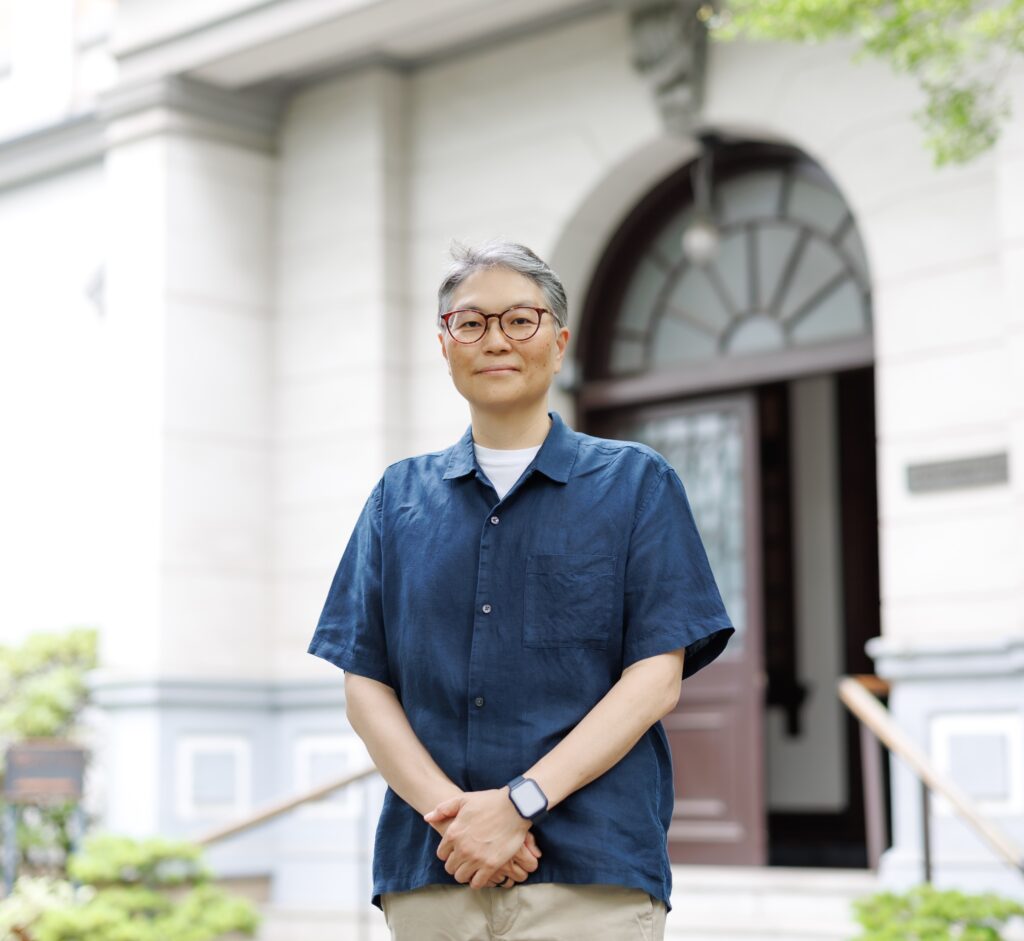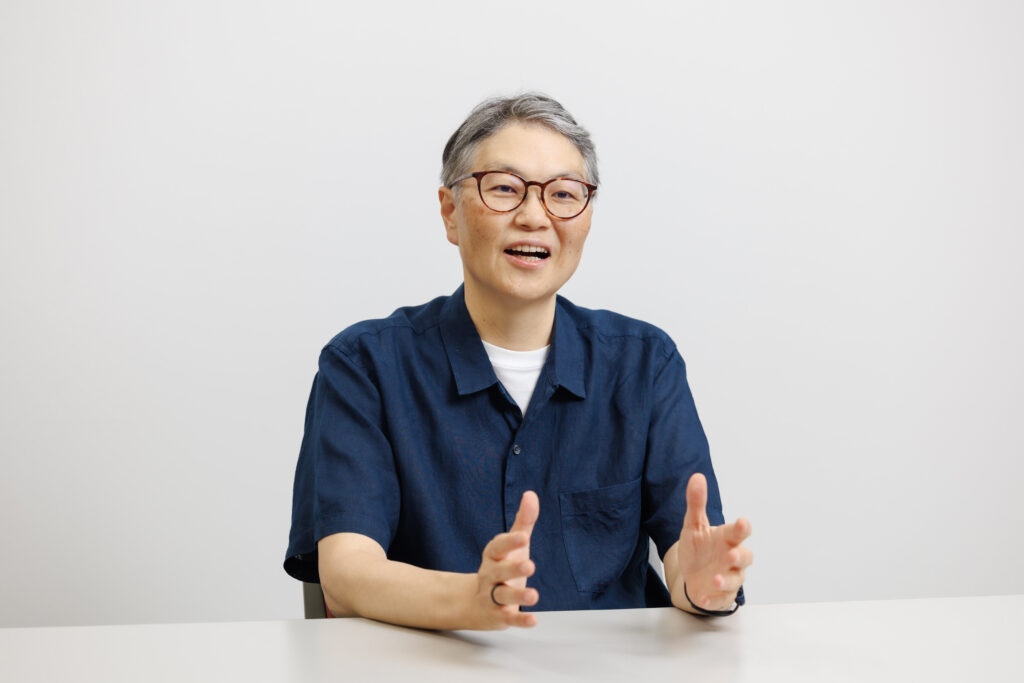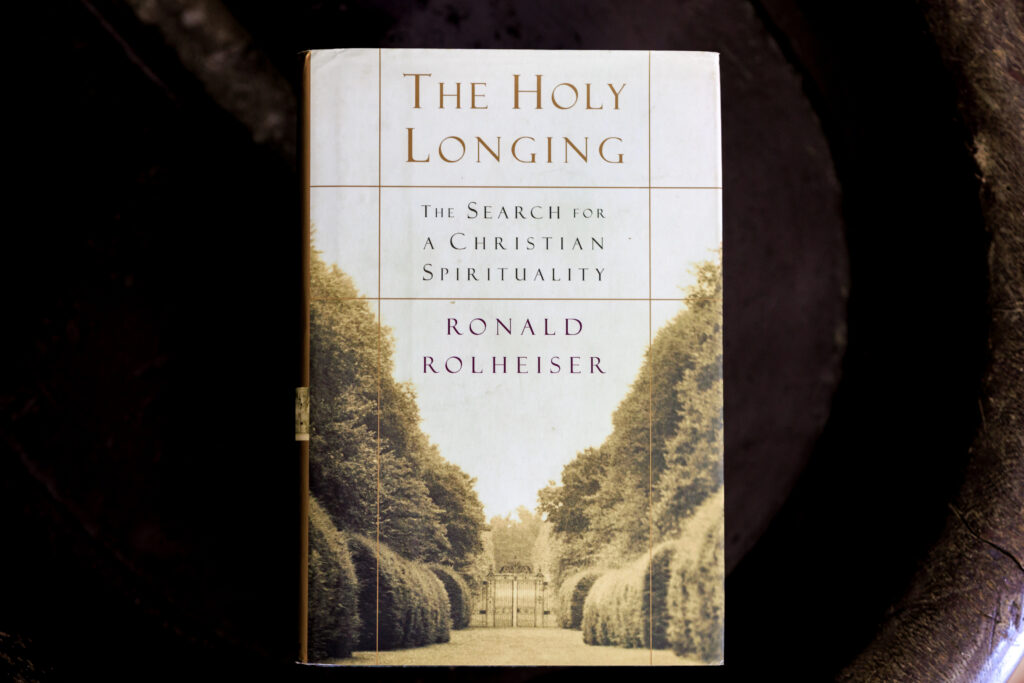
Contrary to the common perception that most Japanese people are not religious, Japanese people grow up listening to stories of yokai (strange apparitions), oni (demons), and yurei (ghosts) and pray in the face of difficult circumstances. Associate Professor Yosuke Sakai of the Faculty of Theology discusses the spirituality that resides within us all.
I specialize in a field called the psychology of religion and am interested in the propensity for “faith” that resides in the deepest recesses of the human mind. I am an ordained Catholic priest, but I have no intention of proselytizing the youth of today; instead, I wish to use the traditional religion of Christianity as a gateway to recognizing our innate religiosity and spirituality.
There are times when we place our faith in the invisible

Even those who do not adhere to a particular religion will pray for the recovery of a loved one when they fall ill. Some even pray so they can pass an exam. Of course, it is doctors who actually cure illnesses and test results that actually determine whether someone passes an exam.
From a logical standpoint, prayer is irrational. Yet we pray. We pray to something invisible and vast. There is a propensity for faith in all of us.
Modern-day spirituality is evident in Japanese subcultures. Think of massive manga and anime hits such as Demon Slayer: Kimetsu no Yaiba and Jujutsu Kaisen or Pokémon and Ghibli. Their audiences are receptive to worlds full of demons, magic, monsters, and spirits.
The same can be said of traditional rites and celebrations. Japanese people visit shrines to pray for the New Year, take part in Shichi-Go-San festivals, and celebrate Halloween and Christmas. It fascinates me that a deep-rooted interest in the spiritual abounds in the everyday lives of those who are not considered religious.
Many people associate the field of theology with research on the Bible and other classical texts. Of course, such research is important, but if we wish to connect the study of religion to the study of the mind, it is critical that we speak with people living today to try to understand their proclivity for the spiritual.
A spiritual awakening to protect oneself from emotional and physical pain
Modern Japanese society values the scientific and the logical. But in our lives, there are events — encounters and farewells; births and deaths; emotional and physical pain — that are impossible to accept through reason alone. When faced with such events, one is forced to come to terms with their powerlessness and limitations.
One cannot rely on human intellect alone if they hope to establish an acceptance of certain circumstances and push forward. There are times when modern-day Japanese need the presence of something that “transcends human intellect.” I believe this is precisely where our innate spirituality comes into play.
Contemporary Japan has been beset by problems posed by religious cults such as the former Unification Church. Though there have been calls to “improve religious literacy,” the majority of Japanese have not received any form of religious education, which makes it easy for them to be taken advantage of by dubious religions.
However, if we are able to recognize our innate spirituality, we will therefore be able to detect the problems in such religions and realize that they cannot fulfill our needs. In some cases even, those who deny the existence of anything that cannot be explained scientifically may find themselves falling victim to deception.
Within us all is the propensity for religious faith, disbelief, and distrust. I believe the traditional religion of Christianity offers an effective gateway to recognizing these aspects within us.
The book I recommend
“The Holy Longing”
by Ronald Rolheiser, published by Doubleday

This book discusses everyday Christian spirituality. The “longing” of the title does not refer to the simple notion of desire, but to the deeply intimate question of how we should live our lives. The recognition of this “longing” will surely serve as a source of strength in life.
-
Yosuke Sakai
- Associate Professor
Department of Theology
Faculty of Theology
- Associate Professor
-
Associate Professor Yosuke Sakai graduated from the Department of Theology, Sophia University, and received his Ph.D. in psychology from the Pontifical Gregorian University. After working as a lecturer at the Institute of Psychology, Pontifical Gregorian University, he was appointed to his current position in 2021.
- Department of Theology
Interviewed: June 2023